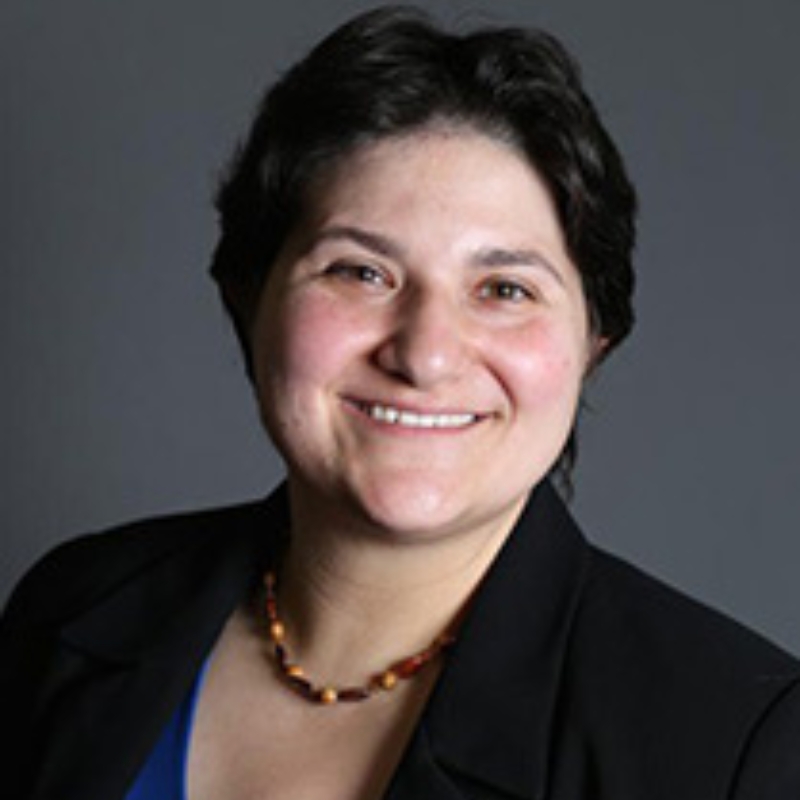A 9-year-old boy playing basketball.
Men sitting in the sunshine with their faces upturned to the sky on a perfect 72-degree afternoon.
Four young moms sitting on a sofa in a library, just talking to one another.
Kids watching cartoons together on an iPad while drinking juice.
A couple dancing with their baby daughter, joyfully celebrating their marriage two days earlier.
These mental snapshots seem like nothing remarkable; they are simple and joyful images of people at rest. Except that they are remarkable in that each of these people is a migrant, and each of these moments represents a sacred moment of refuge and recharge along a journey that is still unfolding.
As Jews, we have historically been a people on the move – Abraham told lech lecha (go forth), 40 years in the wilderness, expulsions from kingdoms and nations both ancient and medieval, refugees fleeing religious and political oppression, survivors of genocide in search of safe-haven. Indeed, we are commanded in our most sacred texts to not oppress the stranger – why? Because we “know the heart of the stranger” (nefesh ha-ger), having been strangers ourselves (Exodus 23:9 and many others). It is a formative piece of our collective Jewish identity.
In February, I had the privilege of participating in the HIAS/ T’ruah delegation of Jewish clergy and leaders to the U.S.-Mexico border. Together, we bore witness to the unfolding story of contemporary life on both sides of the border and visited NGOs there that support the logistical, legal, and humanitarian needs of migrants. We met with people who are in transit to learn their stories and learned about the legal and legislative issues that threaten the entire border ecosystem.
Find more commentaries on Tzav.
In our parshah this week we read, “A perpetual (tamid) fire shall be kept burning on the altar, not to go out” (Leviticus 6:6). The situation on our southern border, and indeed the global refugee crisis, is an esh tamid – a perpetual fire.
I mean that in three ways. First, the sheer magnitude of the crisis. As of June 2023, the United Nations cites that 110 million people worldwide have been displaced from their homes; a number that includes 36.4 million refugees and 62.1 million internally displaced people. That is a huge number. 110 million people means that more than 1 in every 78 people worldwide is currently displaced. This is an issue that would not go away soon even if we brought our best public policy and our best selves to solving it.
But second, we aren’t doing that. Politicians of both parties have effectively stoked the fire by promoting militarization and incarceration instead of humanitarian and legal solutions. Some do so out of outright bigotry and nationalism, others because they believe the electorate wants to see “tough on immigration” policies.
That’s the perpetual fire burning in the negative sense. To meet it, we need a flame that will fire us up and not go out.
Find more commentaries on Migrants and Refugees.
Our sages note that a very similar statement appears at the beginning of the previous verse: “The fire on the altar should be kept burning, not to go out” (Leviticus 6:5). What is the reason for this repetition, and what is the difference? Both verses specify “kept burning” and “not go out,” but only verse 6 uses the word tamid (perpetual, eternal). This flame on the holy altar should not simply be precluded from going out – it should be kindled continuously.
Like the Israelite priests, we must keep kindling this flame of human dignity, life, and refuge; it must not go out. It is not always popular to do so – and that’s ok. In fact, it is even part of the equation: The 13th-century commentator Chizkuni relates that the inclusion of the word tamid points to the need to keep the fire kindled “even if it should somehow become impure.” Not allowing the flame on our collective altar to go out is that important.
A 9-year-old boy playing basketball.
Men sitting in the sunshine with their faces upturned to the sky on a perfect 72-degree afternoon.
Four young moms sitting on a sofa in a library, just talking to one another.
Kids watching cartoons together on an iPad while drinking juice.
A couple dancing with their baby daughter, joyfully celebrating their marriage two days earlier.
We cannot allow ourselves to lose sight of these people, or allow statistics to blur them and their lives into a faceless “issue.” Each and every one of them is a ger (a stranger) on this planet, and we, as Jews, know the nefesh ha-ger. As we look into their eyes, we discover that we know them because we are them. We know the heart of the stranger because the same one beats within our collective chest.
Alanna Sklover has been the rabbi at Or Hadash: A Reconstructionist Congregation in Fort Washington, PA, since 2019. She lives in northwest Philadelphia with her wife, Rebecca Kirzner, and their two children, Bina and Eitan.


